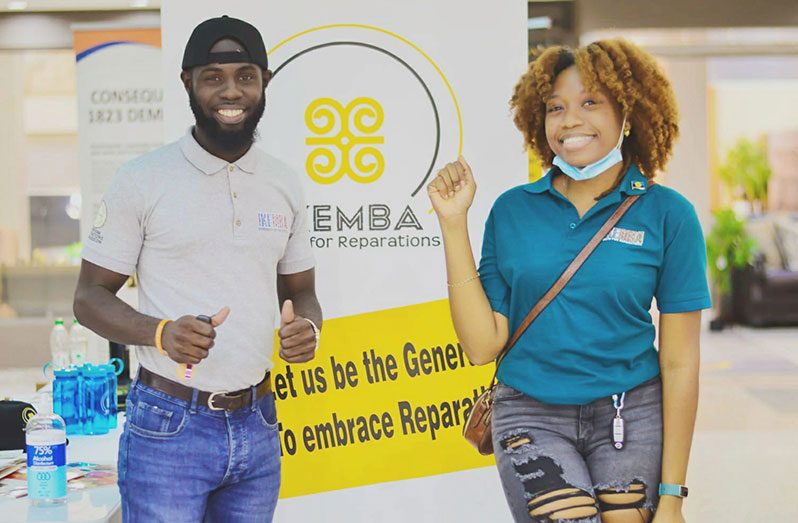THE first time that Onika Frank heard about reparations and reparatory justice was in 2017 when she was an intern at the CARICOM Secretariat under the Human and Social Development Culture Unit.
With a lack of sufficient involvement of young people within the reparations movement and given her background in youth development and experience in culture, Onika decided to use her skills to bring a group of young people together and have a conversation about reparations.
She used the occasion to consult with young people about the best approaches to increase youth involvement in the reparations movement, and, to her delight, the group was very interested.
In fact, the same group that was called to the consultation decided to start the organisation, IKEMBA – Youth for Reparations, with 12 executive members.
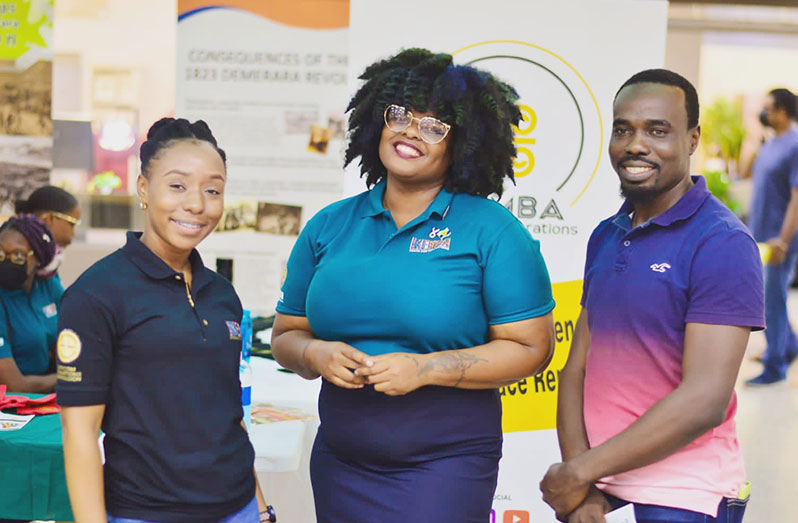
Onika is one of the founders and Vice President of the organisation, which is the youth arm of the Guyana Reparations Committee. The committee, which falls under the CARICOM Reparations Commission, is the only one with a functioning youth arm in the region.
Although reparations may be an emotionally charged subject as it deals with compensation for slavery, racial inequalities and other discriminations that continue to happen, ‘Ikemba’ believes that people should be taught multiple perspectives on the subject.
“Our focus is on challenging the hard truths and changing the methods of delivery and communications when it comes to teaching Caribbean history and culture for people of African descent,” Onika explained in an interview with Pepperpot Magazine.
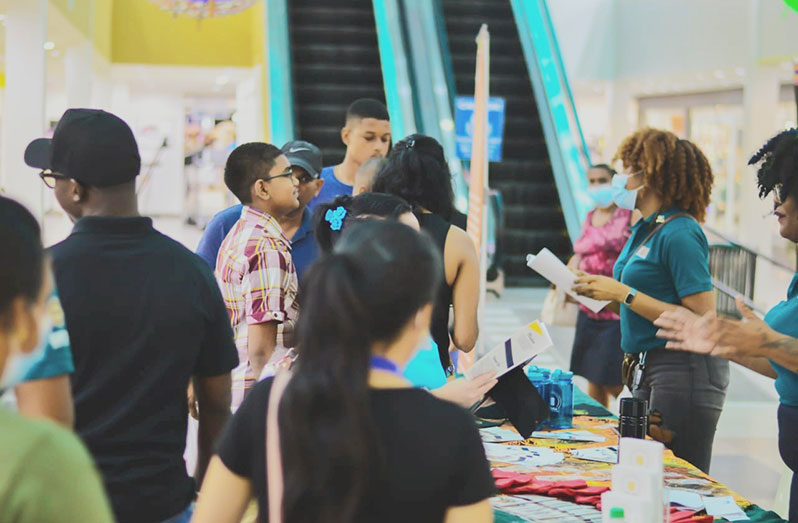
And speaking of the mode of delivery of such information, the organization, last weekend, held the first of three outreach activities at the Giftland Mall where members were on hand to answer questions from the public and generally raise awareness of the work of the organisation, which operates from the Museum of African Heritage in Barima Avenue.
Wanting to see more young people involved in the reparations movement, IKEMBA invited local singer Abel Stokes to serenade passers-by with afro-centric reggae music at the mall last week while volunteers engaged many patrons in reparations discussion and the distribution of tokens, including locally authored and produced books on African history and reparations.
Since the organisation has found that most young people would not pick up a book and read, it uses ‘edutainment’ to get its messages over. “We go into schools and teach our local and regional history; we utilise things like song, dance, poetry, and these other things to teach African history,” Onika shared.
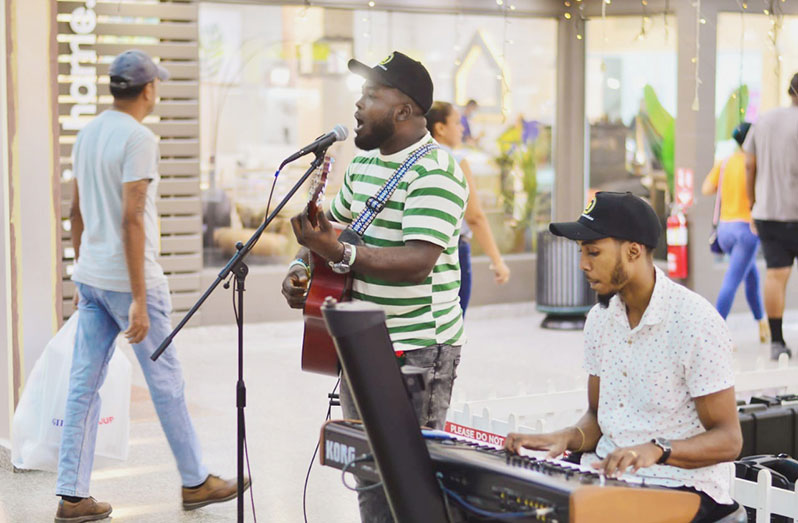
“I think teaching honest history and presenting facts regardless of how graphic, emotionally charged, controversial or offensive it may be, is a prerequisite to any intellectual and historical honest conversation and debate that we’re going to have about reparations,” she further expressed.
IKEMBA believes that there is an urgent need for persons of African heritage to reorganise, embrace their cultural identity and stand up for reparative justice for the enslavement of their ancestors.
Thus, the interactive engagements planned with the public seek to raise awareness about IKEMBA, African Caribbean history, sensitise persons about reparations and the CARICOM ten-point action plan, and promote volunteerism and strategic youth advocacy.
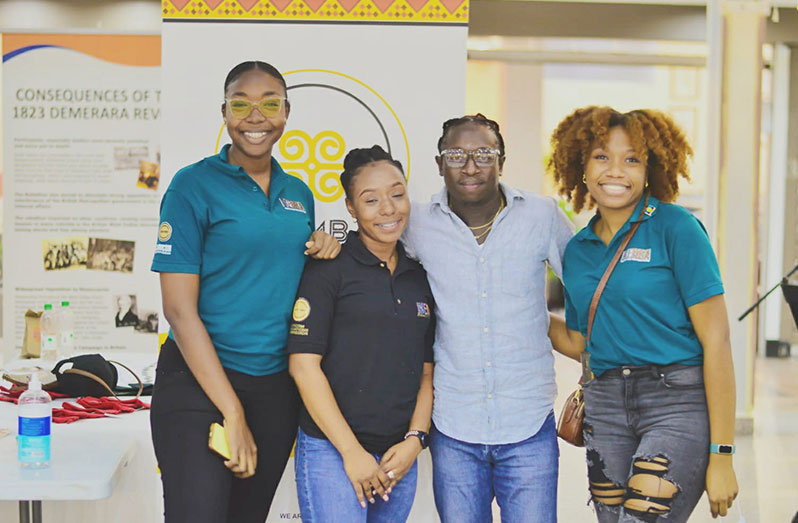
In a statement from the organisation, Onika pointed out how reparations is an instrument of justice and that the enslavement of persons of African heritage was possibly the greatest injustice in the word,that was not only meted out to an entire race, but also an entire region.
“African history cannot be reconstructed from the immediate past decade or century; it began way before that. It even began before the enslavement of our ancestors. However, there were systematic and institutional failures that have set back an entire race of people. We cannot go forward by selectively erasing the past. We must account for it in a way that justice is not a selective tool, but an instrument that all can feel entitled to and catered for,” she stated.
IKEMBA also contributes to cultural education and youth development.




.png)


